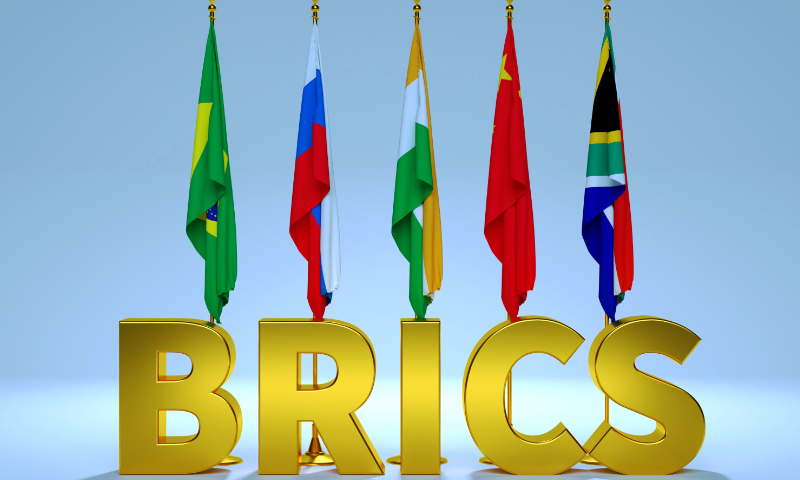BRICS becomes appealing to more countries as Algeria signals interest in joining group: experts

BRICS Photo: VCG
Signals from Algeria that it wants to join BRICS demonstrate that more and more countries have faith in the group, and its ability to offset the negative influence of certain countries' rising unilateralism and protectionism, said experts.
Algerian President Abdelmadjid Tebboune said Algeria is interested in joining the BRICS group, and the country largely meets the conditions of joining the group, Reuters reported.
Observers believe that it is the BRICS' great strength and potential in driving the world economy and its important role in establishing a more equitable and rational global governance environment that is drawing more countries to become part of BRICS in this turbulent era.
After the BRICS summit this year officially proposed studying the standards and procedures for expansion, the group of major emerging economies has become increasingly appealing to more countries.
In addition to Iran and Argentina, which have officially applied to join BRICS, Saudi Arabia, Turkey, and Egypt are also signaling an intent for membership of the group, media reported.
Zhu Tianxiang, director at the Center for BRICS Political and Security Studies, Institute of BRICS Studies of Sichuan International Studies University, told the Global Times that more countries are eyeing joining BRICS as they have faith that its growing collective discourse power and capability in driving economy will better lead global governance toward a fair and equitable future and promote the building of a new international political and economic order, Zhu noted.
In this turbulent year when hegemony, cold war mentality and camp confrontation are prevalent and continue to pose threats to the development of developing countries, their desire for an open, inclusive, mutual respect based collaboration is stronger than ever. Unlike the closed and old-fashioned G7, BRICS has no strings attached and all cooperation is mutually beneficial, the expert explained.
BRICS countries account for about a quarter of the global economy. In recent years, they have contributed 50 percent to world economic growth, the Xinhua News Agency reported in June.
The BRICS Summit Beijing Declaration issued in June agreed to propose discussions among its members on the group's expansion process, and also stressed the clarification of the guiding principles, standards, criteria and procedures for this expansion process after full consultation and consensus.
The five-country BRICS group initially formed in 2009 and is made up of China, Brazil, Russia, India, and South Africa, which joined in 2010.
Observers explained that although many countries have expressed a willingness to join BRICS, the expansion will take some time after criteria were agreed among all the current members. It is more likely that the granting of official membership will start next year at the earliest, they said.
Wang Yiwei, director of the Institute of International Affairs at the Renmin University of China, suggested in a previous interview with the Global Times that G20 countries interested in joining BRICS can be considered first. He mentioned Indonesia as a potential candidate.
Zhu believed that priority for new membership should be given to countries that can better represent the voices of developing countries of different regions.
"There is a lot of flexibility in the process before any new members are included. Besides economic influence and representation, strategic factors may also be considered," Zhu noted.


